Zen Master Hyon Ja: Change (Dharma Note)
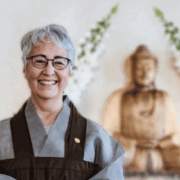 Some things never change— even change itself never changes. No stopping, beginning or ending. It just flows along. Buddha named this phenomena impermanence and pointed to this as a fundamental principle of existence.
Some things never change— even change itself never changes. No stopping, beginning or ending. It just flows along. Buddha named this phenomena impermanence and pointed to this as a fundamental principle of existence.
But even if the Buddha had never said a word about impermanence, human beings would have observed it. Mostly we don’t pay attention because even if we do pay attention, what are we going to do about it and how shall we deal with it?
But then something drastic and harsh happens. At those moments we wake up, our attention focuses razor sharp, and it feels as if the world appears for the first time ever.
A year ago, I was flying back from Asia on my way to Chicago, when all of us in the airplane heard a loud bang. Quickly we were told by the staff that we had to practice emergency landing procedures because two wheels had exploded inside the plane, which meant that the we were in serious danger. At that very moment I awoke to the impermanence of life. My mind intensely experienced not knowing. None of us knew if we would live after the next fifteen minutes. Time slowed down. Fifteen minutes can be eternally long. I looked around, really seeing my neighbors as if for the first time ever, perceiving the fear which flooded the cabin. I immediately started reciting my mantra. Incredibly the plane landed safely, and in me great gratitude arose for all of us still being alive and for my practice, which gave me the clarity to quiet fears and thinking, to be present in what might be the last moments of my life.
Later, as I was going over what had happened on the plane, I remembered the following Zen story:
Before an advancing army everyone fled except for one old monk who remained in the temple. A fierce general was interested in this old monk, who did not seem to be bothered by his army and went to the temple to check him out. When the general entered the temple, the old monk did not stand up and bow in reverence to the general. This enraged the general and, reaching for his sword, he shouted at the monk: “You stupid old fool, don’t you realize I could run my sword through you without blinking an eye! The old monk imperturbably replies: “Don’t you know that I can be run through with your sword without blinking an eye?”
I wondered if the plane had crashed, would I have had the imperturbability to meet my death with such clarity and non-attachment.
Don’t we all long to be able to meet the change in our lives with such bravery, especially the very hard times, such as death of a beloved, dissolution of a precious relationship, serious illness, loss of an important job, confusion of what we should do next? Staying attentive to what is happening to us, taking one step after another, is a very great help.
The Buddha taught us that when we perceive impermanence with wisdom, we turn away from the suffering in our minds. What is it that matters in all those moments of our lives, when the world seems to change and become the great unknown? Are we ready to engage? Can we now prepare?
Preparing for catastrophe or trauma is possible, but it never comes as we might expect or hope for. Sometimes it comes lightning fast… and sometimes change seems to take forever. When my father was passing, my family didn’t know when his last day would be. As it turned out, it took 9 days for him to pass. I spent the last night in his room, next to his bed. He passed the next day at 11:00 in the morning. The last breath was… the last breath. I watched. Each moment flowed into the next moment. Suddenly the last moment softly whooshed in and out, the last breath disappeared, and my father transitioned into the complete unknown.
It is crucial to pay close attention to this changing, which we learn to do when we sit on the cushion. We begin to notice a paradox, which is that this incessant change is embedded in stillness. They are not separate. In the airplane, when it was not known if we would land safely, I was acutely aware that the moments became ever more silent and still. It is in this silence and stillness that we directly experience impermanence. This in turn gives space for wisdom to arise. We can turn away from the suffering in our minds, as the Buddha taught us, and get on with our lives as true human beings.
When we hear or read in the news, that huge portions of the Amazon rainforest were cut down and are now gone forever, or that war is devastating yet another country, or that the fires in Australia and California are burning so hot that we are helpless against them, how do we keep a mind that allows these things their space? How do we engage and not turn away? 10,000 questions are the One Question.
Everyday information floods us and affects our emotional center. When we practice, clarity appears in our minds as well as in our hearts, and this clarity is the very source of compassion and wisdom. Then compassion and wisdom can inspire and motivate our actions. Even while experiencing intense emotional turbulence, the clarity gained in our practice is available to us, and we can participate and engage in our societies with compassion and wisdom and help all sentient beings even during times of challenging change.

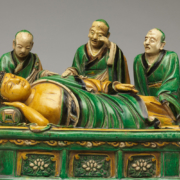 © Met, CC 1.0, Public Domain.
© Met, CC 1.0, Public Domain.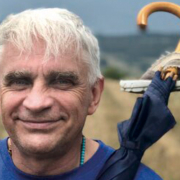
 © czz für VZC
© czz für VZC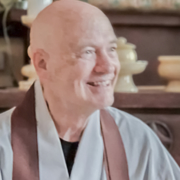 Vienna Zen Center
Vienna Zen Center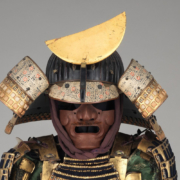 CC 1.0, Public Domain
CC 1.0, Public Domain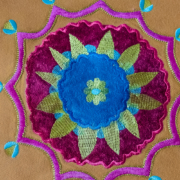 © czz 2021
© czz 2021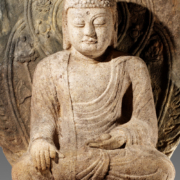 National Museum of Korea, Public Domain
National Museum of Korea, Public Domain

